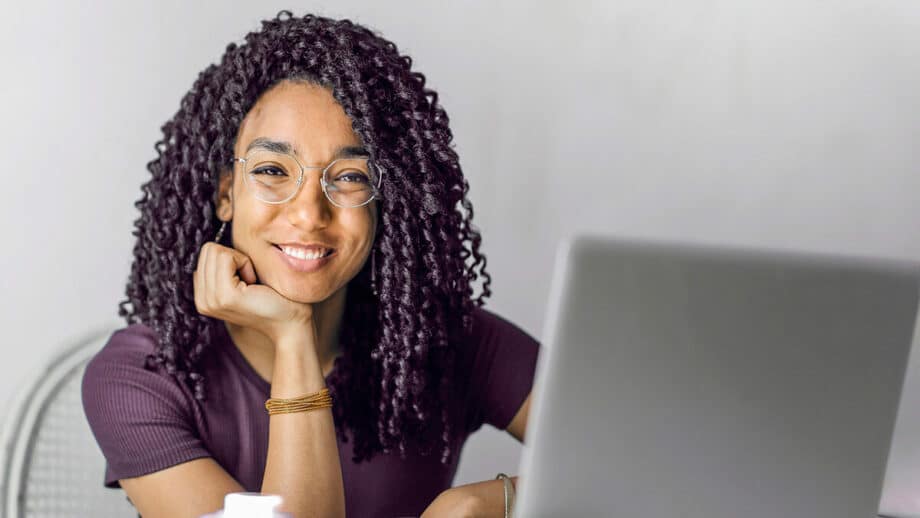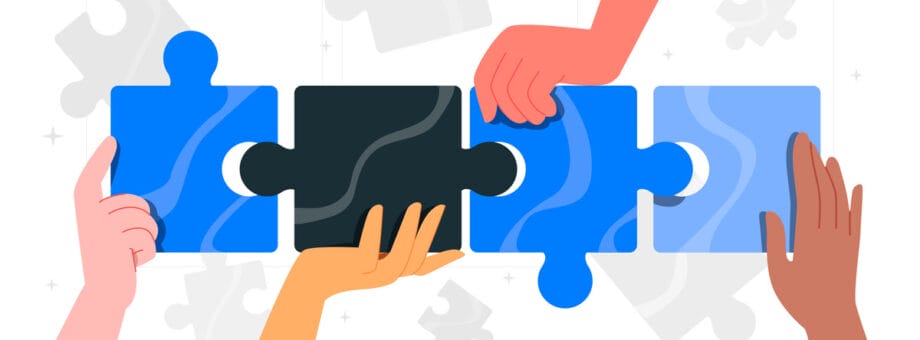The professional landscape in 2025 is more dynamic than ever. Technological innovation, growing working models, and constant skills development are increasing requirements. To navigate this environment requires more than talent — this requires an active approach to foresight, adaptability, and career construction.
Whether you enter the workforce, look for a career axis in the middle of your career, or try to develop, understanding the latest career strategies will help you bloom. This article examines the best career tips for 2025 to help you ensure opportunities, grow continuously, and remain competitive in your industry.
1. Embrace Lifelong Learning and Upskilling

In 2025, the skills will become outdated than ever because of the rapid transport technology scenario. Employers are not just looking for educational qualifications — they give significance to candidates who demonstrate curiosity and a commitment to self-improvement. In industries including AI, data analysis, digital marketing, management, and more, platforms such as Coursera, Udemy, edX, and LinkedIn Learning on-Demand are offered.
Set goals for monthly or quarterly learning. Whether there is mastery in programming languages, understanding data visualization, or strengthening your soft skills, being relevant agents who never stop the learning process. Certificates and micro-caudits are valuable when it comes to communicating your expertise to potential employers.
2. Develop a Strong Digital Personal Brand
Starting today’s hiring process usually involves a Google search. Your new digital resume is your internet presence. For job seekers and experts from many fields, preserving a professional internet brand has become vital.
Start with perfecting your LinkedIn profile: use a professional picture, create an interesting headline, and verify your endorsements, skills, and recommendations are current. Share observations, thoughtfully comment on current events, or publish pertinent material for your sector. Consider also developing a personal blog or website featuring your work, successes, and thought leadership. This sets you as a specialist in your field, in addition to raising your profile.
3. Leverage AI and Automation Tools for Career Growth
Artificial intelligence brings a revolution in the way we hunt, teach, and network for jobs. Smart job platforms now use AI to match candidates who fit their experiences and preferences. You can use the tool to automatically optimize your CV using job details and even present to interviews with an AI-driven mockery of interview platforms.
A resume builder app helps to simplify your employment hunt. These applications let you design elegant, ATS-friendly résumés customized for particular industries or jobs. User-friendly templates and automatic suggestions greatly cut the time and work needed to create a powerful CV.
4. Build a Resilient and Future-Proof Career
The key to long-term success, with rapid transfer of industries due to new technologies such as blockchain, IoT, and machine learning, is to build future evidence skills. Think beyond the role of your current job — identify the skills that can be transferred to other industries. For example, project management, significant thinking, and digital communication techniques are valuable in non-technical roles.
In addition, be informed of the global job market. External and hybrid opportunities mean that your next employer can be based anywhere in the world. Understanding the needs of the international market opens the doors to freelance games, contracts, or even full-time positions outside your boundaries.
5. Prioritize Emotional Intelligence and Soft Skills
Hired technical skills can advance you; however, emotional intelligence (EQ) can help you.EQ is a leading discriminator in leadership and team-based settings in 2025. Particularly in hybrid or remote environments where misinterpretations are frequent, abilities like empathy, flexibility, communication, and conflict resolution are crucial.
Leaders with higher EQ promote better cooperation and morals. For individuals in customer-supported roles, a high EQ customer experience improves, creates trust, and increases the success of sales or service. Mindfulness, active hearing, and investment in response training can improve your professional conditions.

6. Explore Alternative Career Paths and Income Streams
Traditional 9 -5 jobs are no longer the only route for professional success. In 2025, more professionals are looking for freelance work, side hustles, and solo Ventures. GIG platforms, external job tablets, and producer economics tools allow individuals to correct their skills.
Identify ways to diversify income. Whether it is counseling, material construction, online teaching, or associated marketing, alternative career paths provide financial flexibility and open doors for creative freedom. The construction of several income sections is also a defense against financial uncertainty and job institutions.
7. Master Remote and Hybrid Work Competencies
Hybrid and remote work models remain very visible even when some businesses go back to the office. Employers want individuals who are capable of working alone, managing time effectively, and collaborating on virtual platforms.
To be ahead, become skilled with distance equipment such as Slack, Zoom, Trailo, Asanas, and Perception. Learn to manage virtual teams, run asynchronous meetings, and distribute digital presentations effectively. Clear communication and responsibility in an external setting can separate you as a very skilled candidate or team member.
8. Network with Purpose
In 2025, the power of networks is as strong as usual — but it is no longer about participating in events. The determined digital network has been highlighted. Use platforms such as LinkedIn, Twitter (X), and ALA online communities to contact peers, recruitment, and master’s programs in your industry.
Don’t just connect — interact. Comment on the post, ask practical questions, share relevant material, or even request a direct, informative interview. By appearing and engaging in your professional society, you create conditions that give rise to opportunities that are not listed on job boards.
9. Set Clear, Actionable Career Goals
The speechless career path is a matter of the past. In a competitive market, you can differentiate yourself by having a structured career road map. Start determining short and long-term goals by assessing your current skills, identifying areas of improvement, and setting short-term goals.
Use devices such as career mapping, Vision Board, or OKRS (objectives and key results) to coordinate your goals with action stages. Whether your goal is to play a new role, the infection industry, serve a campaign, or transfer, clarifying your way and focusing on your efforts.
10. Stay Current with Industry Trends and Innovations
No matter what field you are in, whether health, finance, marketing, technology, or education, specific knowledge is a competitive advantage. Subscribe to relevant newspapers, listen to podcasts, participate in webinars, and read your domain — Belonging White Paper or Case Study.
Being fluent in the language of the industry means knowing about the new challenges, and the best practice is reported to be that you look at your profession seriously. It also makes you a more valuable property in meetings, job interviews, and the evaluation of the results.

11. Prioritize Work-Life Balance and Mental Health
Burnout has become one of the most pressing work problems in the post-pandemic era. In 2025, companies will pay attention to mental welfare, and professionals will do the same. A healthy balance between work and life improves productivity, creativity, and long-term job satisfaction.
Install clear boundaries between work and personal time. Use a digital welfare tool for screen time, regular breaks and hobbies, training, and time monitoring for social compounds. If you are under the leadership, you advocate policies that support welfare and flexibility for your team.
12. Be Adaptable to Change and Open to Re-Skilling
Adaptability is no longer optional — this is necessary. Career turns are becoming more common, whether due to personal alternatives or industry changes. Unlike changes, it squeezes it. Accept that you may need to restore, transfer, or find new tasks to remain relevant.
Companies value professionals who are not strict in their roles. If you are open to new systems, procedures, or even changing job collections, you can stay in a long-term property. Use career opportunities to detect strengths that you did not know.
13. Invest in Professional Coaching or Mentorship
Professional development in 2025 is about strategic counsel and viewpoint rather than only acquiring abilities. Personal insight into your strengths, weaknesses, and possible career routes comes from career coaches and mentors. A good guardian can help you establish attainable objectives, prevent overall losses, and connect you with important industry contacts.
If the formal coaching is not within the budget, consider the colleague, join the Mastermind groups, or participate in online career communities. These support systems provide responsibility and encouragement, which are important when navigating complex career transitions or leadership roles.
14. Polish Your Interview and Presentation Skills
No matter how impressive your CV is, your ability to clearly and safely communicate, promote, or break. In a world where distance interviews and virtual presentations have become ideal, it is more important to be able to express your thoughts effectively.
Practice Behaviour Interview Use the Star Method (Situation, Task, Action, Result). Register the presentations yourself to improve tone, body language, and clarity. Use online platforms as interview.io or VMock that use AI to assess your reactions and react in real time. This little cleansing can make a big difference when competing for top roles.
15. Understand and Improve Your Digital Literacy
Basic digital literacy in the current job market is no longer enough. In 2025, non-technical professionals themselves expect digital equipment, computer security, online collaborative systems, and relevant new technologies for their industries.
For instance, the rash should be acquainted with automation solutions, SEO, and Google Analytics. HR specialists need to know the HRIS system as well as AI-controlled recruiting gear. Project managers should be flexible with units like Clickup, Monday.com, and Jira. With the most appropriate venues in your region, take the initiative to develop your abilities; this will boost your output and make you more appealing to companies.
Conclusion

The working world in 2025 is filled with both opportunities and challenges. Navigating in this new area requires self-awareness, constant learning, and strategic use of digital units. Whether you are looking for career development, a new area, or those who want to create some of your own, these tips will help you be in front of the basket.
Remember that success is not just about chasing opportunities — this is about preparation for them. Equip yourself with the right tool to make meaningful conditions, and be beneficial in changing. Your career is a journey, and by 2025, you will be an active professional who is ready to lead the future.






